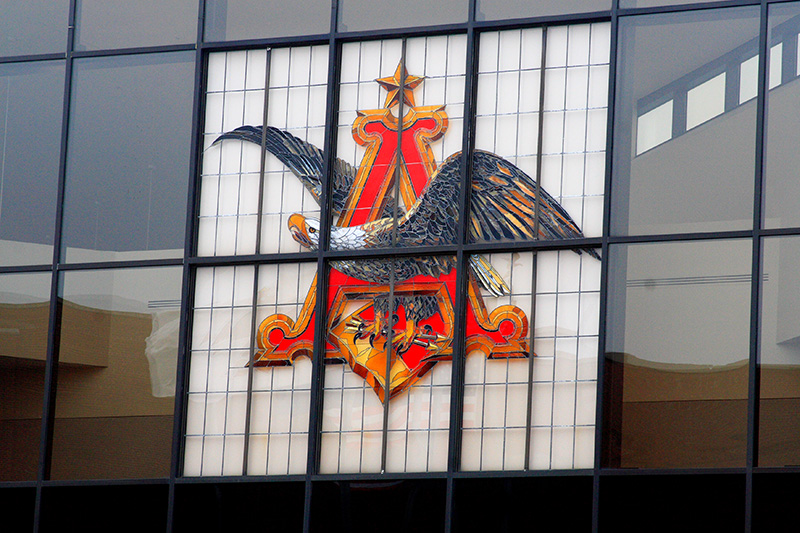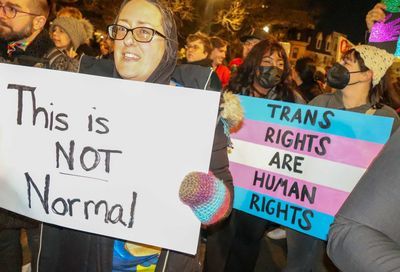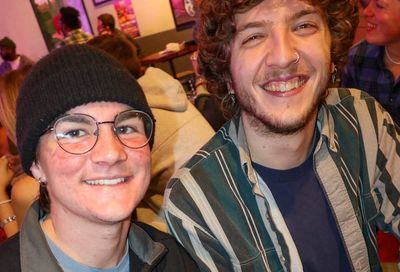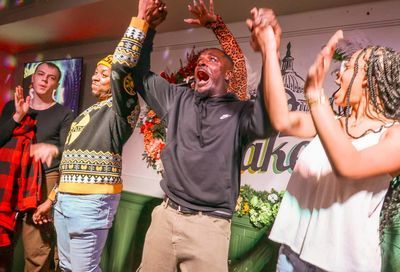President Barack Obama reiterated his oppositions to the Boy Scouts’ longstanding ban on gay members and leaders during an interview with CBS News.
In an interview that aired shortly before the Super Bowl on Sunday, Obama was asked if the Boy Scouts of America should be open to gays. “Yes,” the president responded.
“My attitude is that gays and lesbians should have access and opportunity the same way everybody else does, in every institution and walk of life,” Obama said. “The Scouts are a great institution that are promoting young people and exposing them to opportunities and leadership that will serve people for the rest of their lives, and I think that nobody should be barred for that.”
When the BSA decided in August to uphold the 102-year-old organization’s discriminatory ban, Obama expressed through a spokesman his opposition to the BSA’s decision.
“The President believes the Boy Scouts is a valuable organization that has helped educate and build character in American boys for more than a century. He also opposes discrimination in all forms, and as such opposes this policy that discriminates on basis of sexual orientation,” White House spokesman Shin Inouye told Metro Weekly last August.
Obama’s remarks come days before the more than 70 members of the BSA’s board of directors are set to consider ending the national ban on out gay members and leaders on Wednesday, adding further pressure to the organization.
On Monday, a number of Boy Scouts who have battled the organization’s gay ban are set to deliver 1.4 million signatures collected by various Change.org petitions to the BSA’s national headquarters in Dallas calling for an end to the ban.
The Human Rights Campaign is also pressuring the BSA, running a full-page ad in the Dallas Morning News today urging readers to call on the BSA to end “anti-gay bigotry.” While some advocates have heralded the news that the BSA would end their national gay ban, HRC has argued the end of the national ban does not go far enough.
“While the proposed change is a step in the right direction, we can’t pretend that passing the buck to the local level will eliminate anti-gay discrimination because it won’t,” HRC communications vice president Fred Sainz said in a statement.
Indeed, lifting the national ban would allow local charters to decide if they will choose to exclude gay members, shifting discrimination to the local level.
“This would mean there would no longer be any national policy regarding sexual orientation, and the chartered organizations that oversee and deliver Scouting would accept membership and select leaders consistent with each organization’s mission, principles, or religious beliefs,” BSA spokesman Deron Smith said in a statement last week. “BSA members and parents would be able to choose a local unit that best meets the needs of their families.”
Supporters of the gay ban are also lobbying the BSA, arguing that ending the discriminatory ban would open the door to pedophilia and upend Scouting values.
In an “Alert” sent to supporters of the Family Research Council, FRC President Tony Perkins distributed the phone numbers of several members of the BSA’s board and a sample phone script for supporters of the gay ban to use.
“Please do not jeopardize the safety and moral integrity of Scouting in the interest of social activism,” the script reads in part. “The proposal to relegate the decision on homosexual leaders to local chartered organizations sends the wrong signal from the national body: that political correctness ultimately triumphs over character.”
The Mormon church, United Methodist Church and Catholic Church have the most Boy Scout members of the faith-based groups involved in the BSA. All three churches have stood by the BSA’s gay ban.
Anheuser-Busch, Others Drop Funding for San Francisco Pride
Several corporate sponsors have pulled financial support for this year's San Francisco Pride, resulting in a $300,000 shortfall.
By John Riley on March 24, 2025 @JRileyMW
Several corporate sponsors of San Francisco Pride, including beer giant Anheuser-Busch, have pulled their funding for the celebration's annual festivities.
Over the past four weeks, the companies have informed organizers of San Francisco Pride that they would not be able to support 2025 Pride, claiming a lack of funds as the reason.
None of the companies cited the political climate, but Suzanne Ford, the executive director of San Francisco Pride, said that it was "very abnormal" for several multi-year sponsors to drop their support.
"I just interpreted that companies are making decisions that at this time it’s not good to be sponsoring Pride," Ford told SFGATE magazine, alluding to decisions by several major corporations to abandon diversity, equity, and inclusion (DEI) initiatives.
“LGBTQ,” “Black,” “Women” on Trump’s List of Banned Words
U.S. federal agencies have reportedly flagged over 100 words that may violate Trump's anti-DEI executive order.
By John Riley on March 12, 2025 @JRileyMW
Federal agencies under the Trump administration have flagged hundreds of words to avoid in official government memos, public-facing websites, and informational materials.
Government agencies are seeking to comply with a President Trump executive order seeking to rid the government of diversity, equity and inclusion (DEI) practices, and any programs or initiatives that conservatives decry as "woke," including those that focus on racial and cultural identity, LGBTQ identity, and the idea of "equity" rather than equality.
The list appeared in government memos and agency guidance, ordering the removal of the words from government websites, internal communications, and from written or printed materials.
Attackers Use Grindr to Lynch Gay Israelis in Haifa
Groups of masked assailants are reportedly using the gay dating app to lure LGBTQ Israelis into meeting to maim or kill them.
By John Riley on March 16, 2025 @JRileyMW
Masked attackers in Israel are reportedly using Grindr to lure and entrap members of the LGBTQ community to severely harm them.
According to reports, the assailants are creating fake profiles on the popular dating app and arranging meetings in remote locations in the city of Haifa.
The victims are then ambushed and reportedly stabbed with sharp weapons. A few assailants have attempted to carry out lynchings.
The Aguda, an LGBTQ task force, documented at least ten such incidents in recent months, reports the Jerusalem Post.
But some victims have chosen not to report the attacks, making it more difficult for police to track down and arrest offenders.
Support Metro Weekly’s Journalism
These are challenging times for news organizations. And yet it’s crucial we stay active and provide vital resources and information to both our local readers and the world. So won’t you please take a moment and consider supporting Metro Weekly with a membership? For as little as $5 a month, you can help ensure Metro Weekly magazine and MetroWeekly.com remain free, viable resources as we provide the best, most diverse, culturally-resonant LGBTQ coverage in both the D.C. region and around the world. Memberships come with exclusive perks and discounts, your own personal digital delivery of each week’s magazine (and an archive), access to our Member's Lounge when it launches this fall, and exclusive members-only items like Metro Weekly Membership Mugs and Tote Bags! Check out all our membership levels here and please join us today!
The Magazine
-
Most Popular
 Trump Targets Law Firm for Defending Transgender Rights
Trump Targets Law Firm for Defending Transgender Rights  'Porn Star University' Started by Gay-for-Pay Creator Andy Lee
'Porn Star University' Started by Gay-for-Pay Creator Andy Lee  Montana Governor Signs Anti-Trans Bills into Law
Montana Governor Signs Anti-Trans Bills into Law  Classical & Choral Music: Spring Arts Preview 2025
Classical & Choral Music: Spring Arts Preview 2025  Anheuser-Busch Abruptly Ends Sponsorship of St. Louis PrideFest
Anheuser-Busch Abruptly Ends Sponsorship of St. Louis PrideFest  Film: Spring Arts Preview 2025
Film: Spring Arts Preview 2025  Bea Arthur's Air Force Bio Purged by Department of Defense
Bea Arthur's Air Force Bio Purged by Department of Defense  Priyanka Shetty On Her Incisive New Solo Play '#Charlottesville'
Priyanka Shetty On Her Incisive New Solo Play '#Charlottesville'  Broadway: Spring Arts Preview 2025
Broadway: Spring Arts Preview 2025  Gay Porn Star Tim Kruger Dead at 44
Gay Porn Star Tim Kruger Dead at 44
 Film: Spring Arts Preview 2025
Film: Spring Arts Preview 2025  Classical & Choral Music: Spring Arts Preview 2025
Classical & Choral Music: Spring Arts Preview 2025  Broadway: Spring Arts Preview 2025
Broadway: Spring Arts Preview 2025  Gallery: The Emotionally Sensual Artwork of Soltian
Gallery: The Emotionally Sensual Artwork of Soltian  Montana Governor Signs Anti-Trans Bills into Law
Montana Governor Signs Anti-Trans Bills into Law  Above & Beyond: Spring Arts Preview 2025
Above & Beyond: Spring Arts Preview 2025  Trump Targets Law Firm for Defending Transgender Rights
Trump Targets Law Firm for Defending Transgender Rights  Priyanka Shetty On Her Incisive New Solo Play '#Charlottesville'
Priyanka Shetty On Her Incisive New Solo Play '#Charlottesville'  'Sister Act' at Ford's is a Heavenly Good Time
'Sister Act' at Ford's is a Heavenly Good Time  Popular Music: Spring Arts Preview 2025
Popular Music: Spring Arts Preview 2025
Scene
Metro Weekly
Washington's LGBTQ Magazine
P.O. Box 11559
Washington, DC 20008 (202) 638-6830
About Us pageFollow Us:
· Facebook
· Twitter
· Flipboard
· YouTube
· Instagram
· RSS News | RSS SceneArchives
Copyright ©2024 Jansi LLC.








